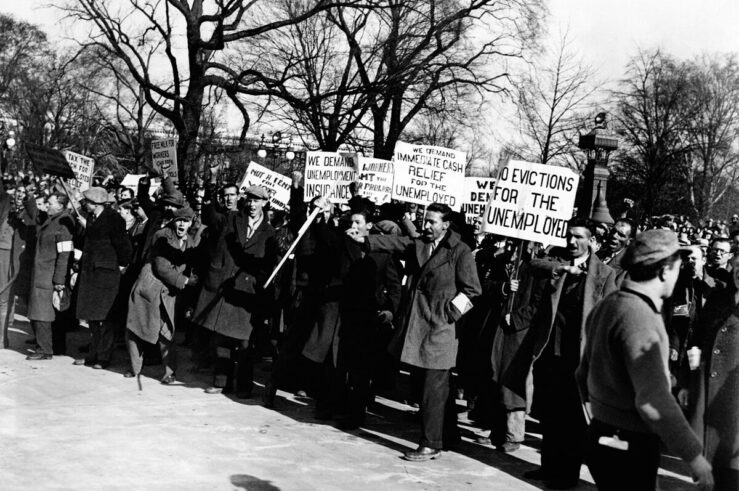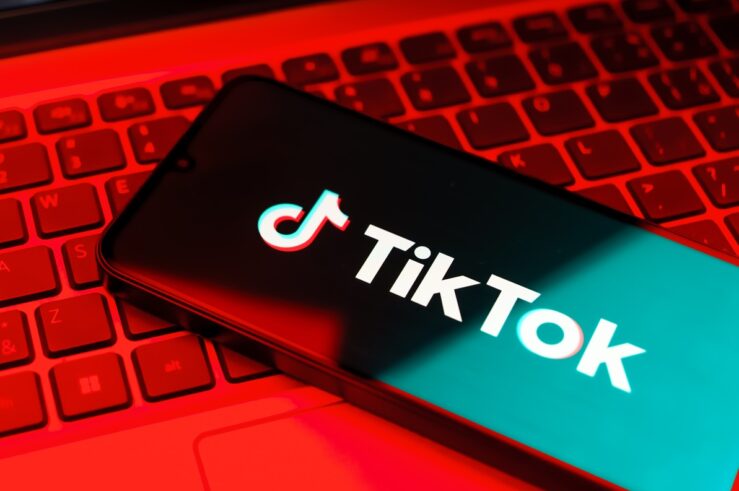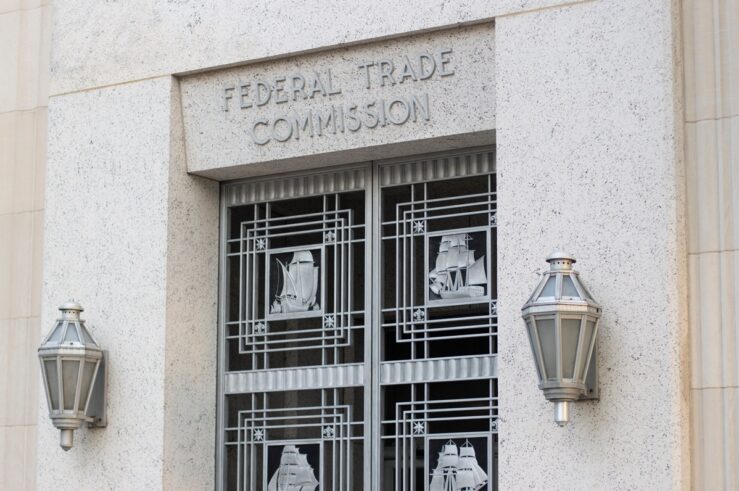Supreme Court Decisions and Regulatory Reform
Three 2024 U.S. Supreme Court decisions issued in 2024 may over time substantially constrain federal agencies’ regulatory authority. The incoming Trump administration may wish to rely on those holdings in implementing its regulatory-reform strategy. Background In 2024, the Supreme Court rendered three decisions that could have major implications in limiting the scope of federal regulatory ... Supreme Court Decisions and Regulatory Reform
Net Neutrality Rule Goes Down, Other Regs May Follow
The 6th U.S. Circuit Court of Appeals on Jan. 2 struck down the Federal Communications Commission’s (FCC) so-called “net neutrality rule” that regulates internet broadband services. If not overturned, this holding will have major implications not just for the provision of those services, but for other intrusive regulatory schemes as well. The decision may be ... Net Neutrality Rule Goes Down, Other Regs May Follow
Perspectives on Industrial Policy: An Interview with Alden Abbott
From a broad perspective, could you provide us with an overview of the current global trend toward the implementation of industrial policy? In your opinion, what are the primary drivers behind the shift? Industrial policy has long been present in various forms, often manifesting as ad-hoc interventions and subsidies that affect market processes. What we’re ... Perspectives on Industrial Policy: An Interview with Alden Abbott
AI Patent Policy Should Promote Economic Growth and Innovation
Artificial intelligence is “technology that enables computers and machines to simulate human learning, comprehension, problem solving, decision making, creativity and autonomy.” AI will play an increasingly important role in driving innovation and economic growth. Strong patent protection can incentivize AI-related inventions and the transmission of AI-specific technological improvements throughout the economy. Accordingly, the Trump administration may ... AI Patent Policy Should Promote Economic Growth and Innovation
Are TikTok’s Days Numbered?
The U.S. Supreme Court will on Jan. 10 hear an appeal of a Dec. 6 decision from the U.S. Circuit Court of Appeals for the D.C. Circuit upholding a 2024 federal law requiring Chinese company ByteDance to divest itself of the TikTok platform. The law will take effect Jan. 19, unless the Supreme Court strikes ... Are TikTok’s Days Numbered?
The FTC Takes Action to Raise Wine and Spirit Prices
In a 3-2 party-line vote, a divided Federal Trade Commission (FTC) moved Dec. 18 to seek a federal district court injunction against Southern Glazer’s Wine and Spirits LLC, the largest U.S. distributor of wines and spirits. The FTC complaint alleges that Southern’s discounting practices discriminated against small independent businesses, violating the Robinson-Patman Act (RPA), to ... The FTC Takes Action to Raise Wine and Spirit Prices
A Possible Federal Role in Reducing State Red Tape
The incoming Trump administration’s commitment to reduce extremely costly regulatory burdens will feature the new Department of Government Efficiency’s (DOGE) evaluation of federal overregulation. But economic research indicates that harmful regulatory bloat exists at the state level, as well. The new administration may wish to propose solutions to state regulatory overreach that harms many Americans. Generic Overregulation at the State ... A Possible Federal Role in Reducing State Red Tape
It May Be Time to Consider Reforming Global Competition Policy
As the incoming Trump administration contemplates ways to promote U.S. economic growth and innovation, it may wish to consider two possible new global competition-policy initiatives. These actions, if successful, could help protect American (and foreign) firms from foreign government impediments to effective competition. Antitrust Around the World Antitrust law (called competition law in other countries) ... It May Be Time to Consider Reforming Global Competition Policy
Why Trump May Consolidate Federal Antitrust Enforcement
President-elect Donald Trump’s new “Department of Government Efficiency” has been tasked with providing advice and guidance on reducing government waste and restructuring federal agencies. One act of restructuring that may warrant consideration would involve consolidating all federal antitrust enforcement within the U.S. Justice Department (DOJ). There are strong arguments that this would reduce waste. In addition, ... Why Trump May Consolidate Federal Antitrust Enforcement
Why It May Be Time to Consider a Merger Policy Reset in 2025
The Biden administration’s federal antitrust regulators—the U.S. Justice Department (DOJ) and the Federal Trade Commission (FTC)—have been widely perceived as actively discouraging mergers and acquisitions. This reflects the rejection of a longstanding bipartisan understanding that government would only oppose proposed M&A transactions that are likely to harm competition. The Biden approach arguably threatens to harm the ... Why It May Be Time to Consider a Merger Policy Reset in 2025
Weighing DOJ’s Proposed Remedies for Google’s Monopolization
The U.S. Justice Department (DOJ) has proposed remedies to a federal judge who held that Google illegally monopolized web search. In reviewing the DOJ’s recommendations, the judge should take into account the downsides of particular remedies, as well as their potential benefits. The judge should be careful not to impose remedies that could reduce innovation ... Weighing DOJ’s Proposed Remedies for Google’s Monopolization
A Tale of Two App Stores
Dueling federal antitrust holdings dealing with app stores could have significant impacts on the future of competition in mobile-internet services. Going forward, antitrust policy in this area should focus on promoting consumer welfare and innovation, rather than the interests of particular competitors. App Store Basics Google and Apple compete vigorously for consumer favor in smartphones. ... A Tale of Two App Stores
















